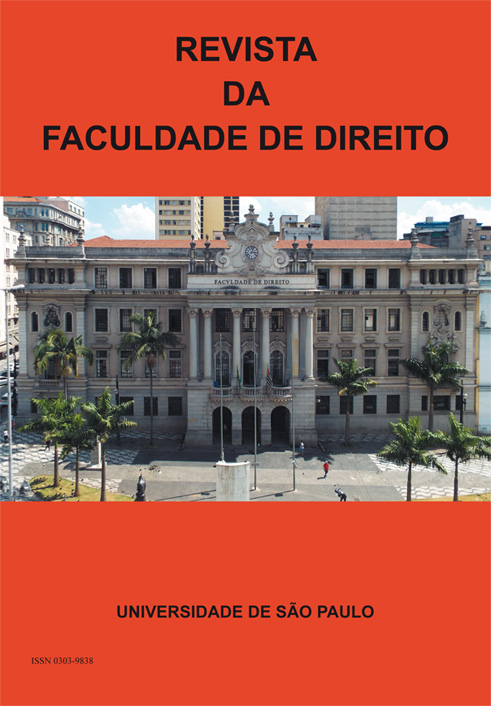A origem do islã. O universo muçulmano. Alcorão e a châr’ia
DOI:
https://doi.org/10.11606/issn.2318-8235.v115p21-46Palabras clave:
Originalidade do Islamismo, Châr’ia muçulmana, Mohammed, Alcorão, Sofismo ÁrabeResumen
O Islã até hoje continua em expansão e é fato que a cada cinco indivíduos no Mundo atual, uma é muçulmana em cômputo de mais de 2 bilhões de fiéis, sendo a segunda maior Religião da História das Religiões. Registra-se que 60% dos intelectuais que se convertem à sua escolha, torna o Islamismo mais que uma Religião e, sim, respeitável Nação sem fronteiras, devido ao espírito de universalidade que transcende qualquer distinção de raça, permitindo a cada povo integração ao âmbito do Islã e, ao mesmo tempo, conservação de sua cultura. Antes do Islã, na Península Arábica, a vida social era afetada pelos usos e costumes que a razão e a consciência repugnavam. A poligamia, a herança de mulheres, consideradas objeto qualquer e a prática da obscenidade são alguns assinalados; enfim, situação caótica do convívio árabe, antes do Islã. Judeus e cristãos, apesar de propagadores, não conseguiram reunir os árabes ou constituí-los em uma só Nação. No âmago desse caos religioso, social e político surge Mohammed (Maomé) agraciado pelo Qura’n (Alcorão), pregando obediência e adoração a um Deus Único, respeito ao ser humano, valoração do pensamento e da mente, auspiciando nova ética, novas Leis como, também, códigos morais. Especialista do Mundo Muçulmano, Peter Demant, professor da USP “a originalidade do Islamismo está inserida em seu programa político e social positivo, simples e reduzi-lo ‘à restauração da châr’ia como Lei obrigatória’”. Islamitas e muitos outros muçulmanos indubitavelmente se reconhecem nesta fórmula, pois ela é vaga demais, lembrando que a châr’ia não é sistema acabado, mas um método para dedução baseada em fontes islâmicas, regras obrigatórias (soluções) em ampla pauta de questões como rituais, sociais, econômicas, familiares, comportamentais, jurídicas, políticas e muito mais. Enfim, não há consenso fundamentado legalmente sobre as fontes em aplicações que se desenvolvem junto à evolução da sociedade que, por sua vez, sempre infiltra novos desafios, de maneira que especialistas não estão de acordo em seu conteúdo. Há muitos movimentos e tendências fundamentalistas diferenciadas entre si, as quais se apresentam no desenrolar expositivo do artigo.
Descargas
Referencias
ALCORÃO. Alcorão sagrado. Traduzido por Samir El Hayek, com apresentação de Abdalla Abdel Chakur Kamel. Rio de Janeiro: Otto Pierre Editores, 1979.
ALCORÃO. O significado dos versículos do Alcorão sagrado. Tradução do árabe e comentários de Samir El Hayek. São Paulo: Marsam Editora Jornalística, 1994.
ARMSTRONG, Karen. Em nome de Deus: o fundamentalismo no judaísmo, no cristianismo e no islamismo. São Paulo: Companhia das Letras, 2001.
ARMSTRONG, Karen. Maomé: uma biografia do profeta. Tradução de Andréia Guerini, Fabiano Seixas Fernandes e Walter Carlos Costa. São Paulo: Companhia das Letras, 2002.
ARMSTRONG, Karen. O Islã. Tradução de Anna Olga de Barros Barreto. Rio de Janeiro: Objetiva, 2001.
CAMPOS NETO, Antonio Augusto Machado de. A châr’ia muçulmana. Revista da Faculdade de Direito da Universidade de São Paulo, São Paulo, v. 101, p. 33-70, jan./dez. 2006.
DAVID, René. Os grandes sistemas do direito contemporâneo. Tradução de Hermínio A. Carvalho. 3. ed. São Paulo: Martins Fontes, 1996.
DEMANT, Peter. O mundo muçulmano. São Paulo: Contexto, 2004.
GILISSEN, John. Introdução histórica ao direito. Tradução A. M. Hespanha e L. M. Macaísta Malheiros. Lisboa: Fundação Calouste Gulbenkian, 1995.
LEME, Lino de Morais. O direito muçulmano. Revista da Faculdade de Direito da Universidade de São Paulo, São Paulo, v. 55, p. 71-83, jan./dez. 1960.
MONSHIPOURI, Mahmood. O mundo muçulmano em uma era global: a proteção dos direitos das mulheres. Revista Contexto Internacional, Rio de Janeiro, v. 26, n. 1, p. 187-217, jan./jun. 2004.
OLIVEIRA, Paulo Eduardo. A mulher muçulmana segundo o alcorão. Rio de Janeiro: Palavra e Imagem, 2001.
SILVA, Justino Adriano Farias da. Introdução ao direito muçulmano. Estudos Jurídicos, São Leopoldo, v. 24, n. 62, p. 87-97, set./dez. 1991.
YOUSAFSAI, Malala. Eu sou Malala: a história da garota que defendeu o direito à educação e foi baleada pelo Talibã. São Paulo: Editora Companhia das Letras, 2013.
Descargas
Publicado
Número
Sección
Licencia
Derechos de autor 2020 Revista da Faculdade de Direito, Universidade de São Paulo

Esta obra está bajo una licencia internacional Creative Commons Atribución-NoComercial-CompartirIgual 4.0.


